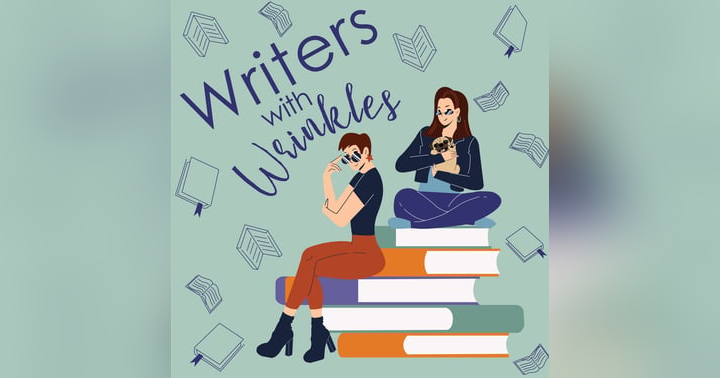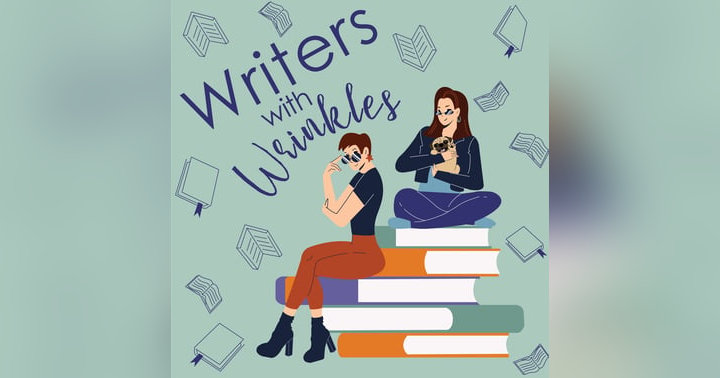Does Publishing Feel Broken?
Every once in a while a topic sweeps through the writing community with enough force that it stops us mid-scroll. Lately, that topic has been the growing concern about how the publishing industry treats debut and midlist authors—and whether the system is quietly becoming more of a gamble than a career path.
In this week’s Ask Beth & Lisa episode of Writers With Wrinkles, we get into that conversation with the help of personal experience, community anecdotes, and decades of watching writers try to build sustainable careers in an increasingly unpredictable landscape.
Welcome to a very real, very honest look at the business behind the books.
When Saying “No” to a Book Offer Is the Right Choice
Lisa kicks off the episode with a story many writers will recognize: she received an offer on a chapter book project—an exciting moment that quickly became complicated.
The publisher asked for specific changes. Reasonable ones. Market-driven ones. And Lisa made them. But the offer itself didn’t feel right. Not in terms of money. Not in terms of the partnership. Not in terms of the long-term view.
Saying no felt terrifying… and also absolutely correct.
If there’s one message we want writers to hear loud and clear, it’s this:
A bad deal is worse than no deal at all.
Your instincts matter. Your gut matters. You deserve to enter a publishing relationship feeling respected, not grateful-for-scraps.
The Debut Book Trap: Pressure, “Bad Track,” and Career Fallout
From there, the conversation widens into the systemic issues so many authors are talking about right now: the immense pressure placed on debut books and the long shadow cast by sales numbers—no matter the circumstances behind them.
Here’s the hard truth:
Most authors don’t control the factors that determine whether their first book succeeds.
Not marketing.
Not PR.
Not sales strategy.
Not whether their editor leaves before launch.
Not whether the publisher has 40 titles on a publicist’s desk.
And yet… the author is the one penalized.
If the book underperforms—even for totally predictable, structural reasons—that number becomes the author’s “track,” and it can follow them into every future submission. Meanwhile, the publisher simply moves on to the next shiny debut.
It’s no wonder so many second, third, and fourth books—often a writer’s strongest work—never get the chance they deserve.
Why So Many Writers Are Talking About Publishing’s High-Stakes Model
We’ve seen a wave of essays, threads, and commentary lately about what feels like a “high-stakes” approach to publishing: taking big swings on flashy debuts while discarding midlist authors who aren’t given space or time to grow.
And here’s what we see from the inside:
Publishers are overwhelmed.
Publicists are overloaded.
Editors are juggling far more titles than any human can support well.
And the industry’s output keeps increasing, while actual reader capacity stays the same.
The result?
Books are orphaned. Support evaporates. Careers end before they begin.
Not because the writing isn’t strong—but because the system simply wasn’t built to nurture more than a tiny fraction of its authors.
The Rise of Indie, Hybrid, and Small Press Options
Here’s the silver lining:
When the big-player ecosystem pushes good writers out, those writers don’t disappear.
They reinvent.
The indie and hybrid landscape looks nothing like it did ten years ago. Covers are stunning. Editing quality is high. Distribution is wider. More and more authors are finding freedom—and readership—outside the Big Five.
We’ve both read incredible, beautifully crafted books that were indie-published. You probably have too, without even realizing it.
For many midlist authors, these alternative paths don’t feel like “giving up.”
They feel like taking back control.
Is There a Fix? Maybe. Maybe Not. But Writers Aren’t Powerless.
We don’t pretend to have all the answers—but we do know this:
You’re allowed to say no.
You’re allowed to protect your long-term career over short-term excitement.
You’re allowed to walk away when a deal doesn’t feel respectful.
And you’re allowed to explore every publishing option available—not just the ones that used to be considered “legitimate.”
In a system that often feels designed to drown its baby raccoons (yes, you’ll have to listen to the episode for that one), taking ownership of your work and your path isn’t just smart—it’s necessary.
Listen to the Full Episode
There’s so much more in the conversation—stories, hard truths, surprising optimism, and a few detours (as always).
Listen now:
👉 [Insert Podpage audio player or episode link]
Want More From Writers With Wrinkles?
Subscribe to our newsletter: writerswithwrinkles.net
Leave us a review—it genuinely helps more writers find the show
Keep an eye out for new bonus episodes, including first-pages critiques and craft talks








